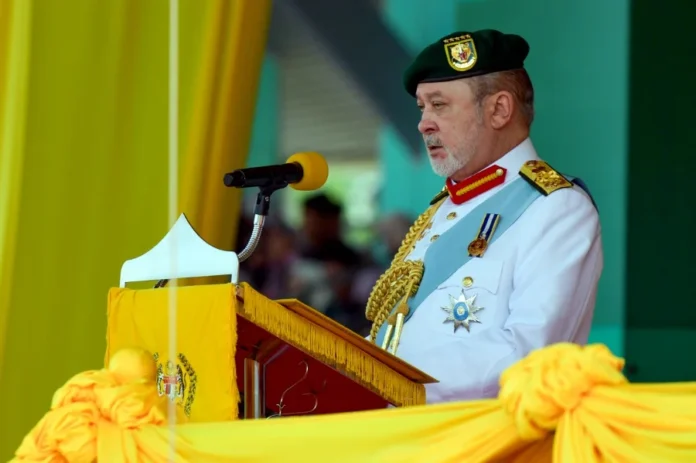During the visit, he will meet with President Xi Jinping and is expected to discuss potential support for infrastructure projects aimed at enhancing connectivity with neighboring Singapore.
Accompanying Sultan Ibrahim on this trip will be Malaysia’s transport and housing ministers, according to a statement from the Malaysian foreign ministry. The visit is seen as a valuable opportunity to strengthen Malaysia-China relations and ensure they remain dynamic and prosperous.
Sultan Ibrahim, who became Malaysia’s 17th king in January under a rotational monarchy system, has shown interest in influencing political matters. He previously suggested that Malaysia’s state oil company Petronas and the country’s anti-corruption agency should report directly to the monarchy.
The previous visit by a Malaysian king to China took place in 2014. During his trip, Sultan Ibrahim is also scheduled to meet with Premier Li Qiang. Li, who visited Kuala Lumpur in June, supported Malaysia’s plans to improve connectivity through a $10 billion rail project linking to other China-backed rail initiatives in Laos and Thailand. This project is part of a broader vision for a Pan-Asia Railway from Kunming in China to Singapore, potentially passing through Johor.
Sultan Ibrahim has expressed interest in reviving a stalled high-speed rail project connecting Malaysia and Singapore, featuring a border crossing in Forest City—a $100 billion development involving China’s Country Garden and a Malaysian partner supported by the Sultan.
China’s investment in Malaysia, particularly in metals, energy, and transport, has been substantial, with $26 billion directed towards the country since 2010. However, Chinese developer Country Garden has contributed only $110 million of this amount.
The relationship between Malaysia and China has also been scrutinized recently, especially following Malaysian Prime Minister Anwar Ibrahim’s comments on China’s objections to Malaysia’s oil exploration activities in the South China Sea. Despite the disputes, both nations continue to engage in dialogue. China claims almost the entire South China Sea based on historical maps, a claim that an international tribunal in 2016 ruled as lacking legal basis, a decision China does not accept.

